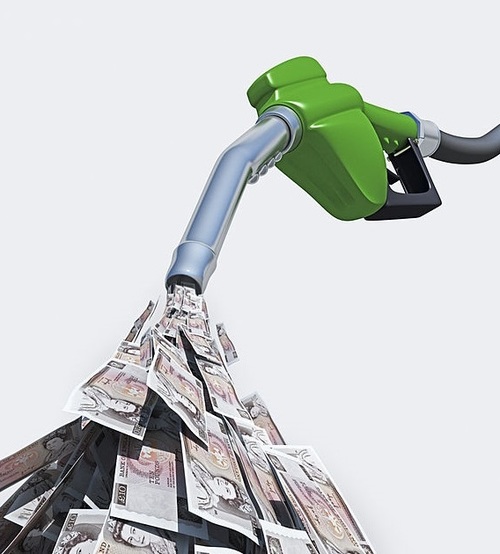Photo by [Zululand Observer]
During the budget speech last week at the Cape Town City Hall, Finance Minister Enoch Godongwana announced that the fuel and Road Accident Fund levy would not be increased in 2023.
In addition, food manufacturers, who use diesel in their manufacturing process, will receive a refund of the RAF levy on diesel to mitigate the impact of the electricity crisis on food prices in the country. It will be implemented on April 1 and remain in place for two years until March 31 2025.
Currently, the fuel levy will remain at R3.95 per litre, and the RAF levy will remain at R2.18 per litre of 95 octane petrol. However, fuel prices will increase depending on the international price of Brent crude oil and the strength of the rand against the US dollar.
The Lack of Road Maintenance
Jashwin Baijoo, Head of Strategic Management and Compliance at Tax Consulting SA, said fuel levies are continuously leveraged against those who can afford to pay them.
“The fuel levy can be leveraged on those who can afford it because [A] they need to utilise the road transportation system, they need to utilise their vehicles and [B] most likely if you can afford your own vehicle, you can afford a slight increase in a fuel levy. That’s all good and well, but if you actually look at it in that way, is that not then some form of a wealth tax? It’s an additional tax imposed on a resource which, in most cases, is utilised specifically by those who are in a higher income bracket. Not necessarily your top one percent or your top five percent, those who are in a position where they can afford it and are subject to these additional levies and taxes.”
In addition, many road users who are subjected to fuel levies expect the government and local municipalities to maintain and repair the roads. It has not been the case for the most part, given the number of potholes in the streets. Raising questions by citizens on the necessity of fuel levies in the first place.
Baijoo adds that increasing fuel levies will do little to the state and condition of the roads in South Africa so long as the mismanagement of the funds continues at the national and provincial government levels.
“Regardless of how we increase the levies, if there is that continuous mismanagement or incorrect prioritisation of usage of funds by the municipalities or at a higher level, regional or national, if that poor prioritisation continues and funds just keep disappearing from the coffers of the municipalities then you’re not going to have road maintenance. You’re not going to have potholes fixed, you’re not going to even have road signs up, nor will you have lines on your road painted.”
SMread| The Ministerial Committee aims to create a better Hajj/Umrah experience for all
Inefficiency at the RAF
Baijoo said for the longest time the RAF has been insolvent and inefficient in processing claims made by road accident victims. These claims can take years to process. Though South Africans welcome the decision made by the government not to increase the RAF levy, Baijee adds, it could be viewed as an attempt to bail out the RAF.
“With the RAF levy, in essence, that is just an attempt to bail out the RAF. It’s going to go very much similar to the way that Eskom has gone. Where the government bails out another state parastatal on which debt they have already secured creating a loop and basically [its] quite pointless.”
SMread| OPINION: Voter apathy is bad news for South Africa
Calls to Scrap the Fuel Levies Entirely
Earlier this month COSATU called on the government to scrap the fuel taxes to mitigate the adverse effects fuel prices have on commuters, the economy and the underprivileged in society.
In a statement released by COSATU, “Poor households are already struggling to survive under these difficult conditions, and an increase in the price of paraffin will leave many poor families worse off. This increase in fuel prices will create a level of hardship for a society that is already suffering from high levels of unemployment and stagnant or declining real wages.”
Though COSATU is aware of the volatility of the international oil price, they are aware of the government’s ability to provide relief to road users and the economy by lowering fuel taxes as they did in 2022.
“These higher fuel prices drain the purchasing power of most South Africans and retard economic recovery. It is in the best interest of [the] government to find a workable solution to this ever-present challenge.”
